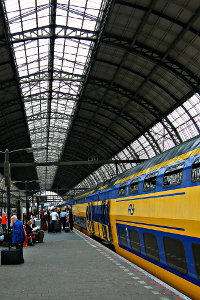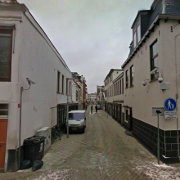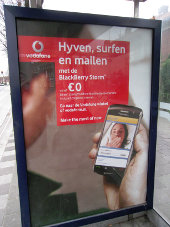
Sharing unstamped train tickets started with a Facebook page for Utrecht Central Station, the country’s biggest train station, with 9,400 likes and counting, and is spreading like wildfire to the rest of the country. Although many people now use a public transport chip card for train travel, paper tickets are still available until next year, and this trick works with paper tickets. It all started with a girl who took a picture of her train ticket and put it on Facebook to share it. Then three guys picked up the idea and started Facebook pages to do the same, with rumours of developing an app.
I plan to go from Amsterdam to Utrecht and back the same day. I buy a paper train ticket, get in the train, travel, and go back to Amsterdam in time for dinner. The train staff didn’t stamp my train ticket, so it can be used again for the same trip. The goal of the Facebook page is to share these tickets by leaving them somewhere at a train station, making someone’s else day, with a small treasure hunt as a bonus.
Technically a train ticket cannot be used twice and it is illegal to do so, but if nobody checks, nothing can be proven, and it’s been like that for ages. So why is it trendy now? Social media makes it easier to share these tickets and the prices keep going up, but not the service, so people are getting creative. As well, finding out that Dutch railways (NS) has been evading taxes to the tune of 250 million euro by buying trains through Ireland will make you stop your moral questioning since the NS is not burdened by any such feelings.
Then again, these Facebook pages are encouraging people to commit fraud, which won’t get the NS to check train tickets more often as they simply do not have the staff for it. The sharing is also not very convenient for one way tickets.
Either way, the message is clear: train tickets are too expensive and people are not happy with the NS.
(Links: www.duic.nl, www.telegraaf.nl, Photo of train by Flickr user UggBoy hearts UggGirl, some rights reserved)
 Ten former prostitutes are claiming 1.2 million euro from seven procurers before a court in The Hague.
Ten former prostitutes are claiming 1.2 million euro from seven procurers before a court in The Hague. 
 Popular Dutch social network Hyves will stop operations on 2 December,
Popular Dutch social network Hyves will stop operations on 2 December, 


 Two angry blog posts in as many months show the state of freedom of information in the Netherlands. Long story short, the government wants everybody to be transparent except themselves.
Two angry blog posts in as many months show the state of freedom of information in the Netherlands. Long story short, the government wants everybody to be transparent except themselves.

 Magazine publishing giants
Magazine publishing giants 
